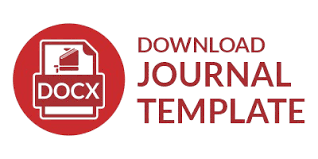Training in Waqf Administration for Micro, Small, and Medium Enterprises: A Novel Paradigm of Community-Centric Sharia Economic Framework in the Mujahadah Mosque Vicinity of Rintis Village, Pekanbaru
DOI:
https://doi.org/10.62710/11d00r37Keywords:
Productive Waqf, MSMEs, Sharia Economy, Community Empowerment, Community ServiceAbstract
The present community service initiative seeks to enhance individuals' capabilities in the effective administration of waqf through the empowerment of Micro, Small, and Medium Enterprises (MSMEs) within the framework of the sharia economy. This training was meticulously crafted in response to the inadequate utilization of waqf assets in bolstering the local economy, as well as the constrained access to capital for MSMEs at the grassroots level. The methodologies employed for implementation encompass preparatory stages, participatory training, evaluative measures, and advanced mentorship. The event transpired over a duration of three days, engaging 45 participants hailing from diverse backgrounds, including MSME practitioners, nadzir, religious leaders, and village youth. The materials disseminated comprised productive waqf literacy, management of sharia-compliant MSMEs, and simulations for waqf-based business planning. The outcomes of the activities indicated a notable enhancement in the participants' comprehension, the establishment of three waqf-oriented business groups, and tangible support from local authorities manifested through the provision of assets and formal institutional recognition. This initiative substantiates the proposition that waqf can be optimized as a mechanism for community economic empowerment, provided it is managed in a collaborative and community-oriented manner. The waqf management model for MSMEs developed through this training demonstrates the potential for replication across various regions, thereby contributing to the sustainable and inclusive economic fortification of the ummah. Furthermore, the program promotes the cultivation of a sharia economic ecosystem that positions communities as primary stakeholders rather than mere beneficiaries.
References
Ahmad, R. A., Mafaza, S. A., & Handayani, R. (2021). Integrated cash waqf and islamic microfinance to poverty alleviate. El Barka: Journal of Islamic Economics and Business, 4(1), 61–80. https://doi.org/10.21154/elbarka.v4i1.3018
Cokrohadisumarto, W. bin M., & Sari, Y. I. (2024). Mosque-based integrated community empowerment model. Islamic Social Finance, 4(1). https://doi.org/10.58968/isf.v4i1.372
Dharma, B., Syarbaini, A. M. B., Rahmah, M., & Hasby, M. (2023). Enhancing literacy and management of productive waqf at bkm almukhlisin towards a mosque as a center for community worship and economics. ABDIMAS: Jurnal Pengabdian Masyarakat, 6(1), 3246–3255. https://doi.org/10.35568/abdimas.v6i1.3066
Fajariah, A. P., Sudana, S., & Rusydiana, A. (2020). Wakaf uang untuk optimalisasi pembiayaan usaha mikro kecil dan menengah (Umkm) melalui koperasi syariah di indonesia. Jurnal Manajemen Teori dan Terapan | Journal of Theory and Applied Management, 13(1), 1. https://doi.org/10.20473/jmtt.v13i1.14399
Fatira,M.,& Nasution,A.W.(2019). Boosting The Welfare of Business Community: Implementing The Model of Islamic Micro Bank of Waqf in Pesantren. Al-Falah – Journal of Islamic Economics. Vol.4. No.1.2019. 13-25. https://pdfs.semanticscholar.org/2a4c/ab6945b4f8427dbf3410304749205ebf506b.pdf
Fitriyani,F. & Habibah,A.(2024). Analisis manajemen wakaf dalam pemberdayaan masyarakat di masjid al-munawwarah kelurahan penyengat rendah kota jambi. Jurnal Nuansa : Publikasi Ilmu Manajemen dan Ekonomi Syariah, 2(3), 99–109. https://doi.org/10.61132/nuansa.v2i3.1093
Haryono. (2024). Konsepsi Wakaf Uang Dalam Memberdayakan UMKM Di Indonesia . Ad-Deenar: Jurnal Ekonomi Dan Bisnis Islam, 8(01). https://doi.org/10.30868/ad.v8i01.6439
Istikomah, I., Nur, S. K., & Hasanah, M. (2022). Optimalisasi Fungsi Masjid sebagai Sentra Pengembangan Wakaf Tunai dalam Meningkatkan Ketahanan Ekonomi Masyarakat Watukebo Jawa Timur: Optimizing the Function of the Mosque as a Development Center Cash Waqf in Improving Economic Resilience Watukebo Community, East Java. Amalee: Indonesian Journal of Community Research and Engagement, 3(2), 295–303. https://doi.org/10.37680/amalee.v3i2.1493
Madani, R. I., Nurhidayati, N., & Thomafy, K. (2024). Examining the potential of cash waqf and development model. Munazzama: Journal of Islamic Management and Pilgrimage, 4(2), 83–103. https://doi.org/10.21580/mz.v4i2.18557
Mahendra, Y. I., Musawwar, & Khotmi, H. (2023). The effectiveness of mosque-based women’s economic empowerment through the "Mawar Emas" program by the west nusa tenggara sharia economic community on Lombok Island. Enrichment : Journal of Management, 13(2), 722-730. https://doi.org/10.35335/enrichment.v13i2.1258
Muthoifin, M., & Rhezaldi, A. Y. (2024). Community economic empowerment through mosque management to improve people’s welfare . Multidisciplinary Reviews, 7(8), 2024134. https://doi.org/10.31893/multirev.2024134
Rahmalan, M. T., & Hussin, M. F. A. (2021). A systematic review of contemporary and innovative waqf sources: Cash and service waqf. Jurnal Syariah, 29(2), 289–316. https://doi.org/10.22452/js.vol29no2.5
Rahmalan, M. T., & Hussin, M. F. A. (2021). A systematic review of contemporary and innovative waqf sources: Cash and service waqf. Jurnal Syariah, 29(2), 289–316. https://doi.org/10.22452/js.vol29no2.5
Syukriah, S., Antasari, R., & Azwari, P. C. (2024). Model Pemberdayaan Ekonomi Umat Melalui Aset Wakaf Masjid Besar Darul Muttaqin Kecamatan Alang Alang Lebar Palembang . Jurnal Iqtisaduna, 10(2), 553-568. https://doi.org/10.24252/iqtisaduna.v10i2.52837
Yolanda,N.(2015). Peranan Wakaf Produktif Terhadap Keberlangsungan Usaha Mikro Kecil Menengah (Umkm) Dan Kesinambungan Badan Wakaf Walisongo. Al-Maslahah : Jurnal Ilmu Syariah.Vol.11.No.1.2015. https://jurnaliainpontianak.or.id/index.php/Almaslahah/article/view/136/115
Zulfa, M., & Arif, M. (2020). Potensi wakaf tunai dalam mendorong pengembangan umkm di kota pekanbaru. Jurnal Tabarru’: Islamic Banking and Finance, 3(2), 173–184. https://doi.org/10.25299/jtb.2020.vol3(2).5758
Zusak, M. B. F.,Zaki,I.,Fauzi,R.M.Q.,Hasib,F.F.,& Hapsari,M.I. (2023). Innovation on islamic microfinance waqf management: Problems and strategies. International Journal on Recent and Innovation Trends in Computing and Communication, 11(9), 4995–4999. https://ijritcc.org/index.php/ijritcc/article/view/10156
Downloads
Published
Issue
Section
License
Copyright (c) 2025 Wali Saputra (Author)

This work is licensed under a Creative Commons Attribution-NonCommercial-ShareAlike 4.0 International License.






